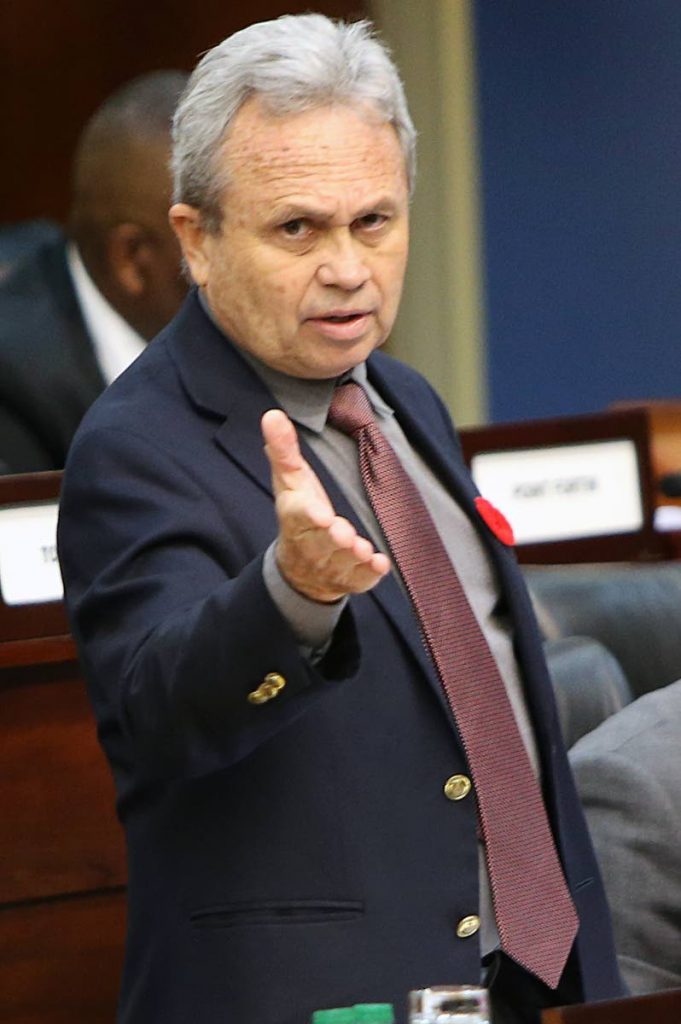Colm defends gaming taxes, says roulette machines like PLAY WHE ON STEROIDS

A special taxation of $120,000 a year will be imposed on the electronic roulette device, up from $36,000 a year, because of its “peculiar nature”, as the, “real money spinner” in the gambling and gaming industry, Finance Minister Colm Imbert said.
The electronic roulette device, which caters for 12 players at one time and is wagered every 20 seconds, he said, attracts some $500,000 to $1 million a year. “Unbelievable. I understand it is some kind of exponential Play Whe...super Play Whe...Play Whe on steroids.”
Imbert made the comments yesterday while moving a motion to allow for the confirmation of a provisional taxes order to raise taxes on gambling and gaming devices, reclassification of hybrid and CMG vehicles, harmonisation of taxes on tyres and removal of taxes on certain categories of motor cycles in keeping with the Provisional Collection of Taxes Act.
This is part of Government’s revenue collection initiatives for the 2018 budget. The order will take effect from January 1, 2018. Other gaming devices will attract a 100 percent increase in taxation, he said.
Focusing on the electronic roulette device, Imbert, who claimed he does not know what the electronic roulette device looks like said, “If one roulette machine is generating $500,000 in profits a year, they are not going to send home workers. That is just talk. It is an attempt to terrorise people. And if they do it. It is just pure wickedness.”
He continued, “They would have to hire them back. The machines can’t work on their own. These are not robotic devices. They have to have somebody operating the roulette table.” A worker, he said, earns about $150,00 a year. “Why would you send home a worker who is generating $500,000 a year,” he asked.
The electronic roulette device is expected to generate $84 million in revenue once there is full compliance. Claiming the gambling industry is booming, Imbert said, “It is believed there are more than 20,000 amusement gaming machines in Trinidad and Tobago.” A slot machines in bars and restaurants operating under the Liquor Licences Act will now attract a rate of $6,000 a year up from $3,000. The slot machines are expected to increase revenues by about $60 million a year.
“The slot machines generate some revenue,” he said, “but nowhere close to the roulette table.” Establishments in liquor licences, Imbert said, are entitled to operate up to 20 amusement gaming devices. However, he said, based on reports they now operate electronic roulette machines which is wagered “Three times a minute.”
As the industry is largely unregulated, he said, it was necessary to take the necessary actions. While the Gambling Control Bill is still to make its way through the Parliament, he said, “We believe that the people of Trinidad and Tobago should get its fair share of this $15 billion industry.”


Comments
"Colm defends gaming taxes, says roulette machines like PLAY WHE ON STEROIDS"